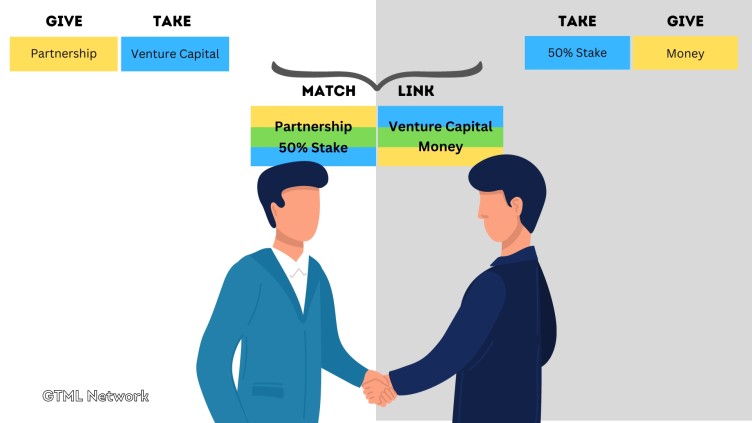- Not everybody working in a profession is a professional.
- Professionalism is a vast area of developing yourself and fostering positive surroundings in your workplace.
- A Professional is that person in your office who dresses smart, acts wise, is respectful, leads the group and demonstrates ethics and etiquettes.

Table of Contents
Be Competent
Competence refers to the ability to perform job tasks effectively and efficiently. It is a crucial aspect of professionalism, as it ensures that work is done to the highest possible standards. By developing competence, you can increase your value to the organization and contribute to its success. You will be that person to whom your colleagues will rely on in difficult situations. You will have a presence to which nobody would ignore. Your name will be the first one to be uttered by your seniors when delegating high value tasks. And to be competent, you, as a professional, should have all the necessary knowledge, skills, and experience to perform your job effectively. You should also be willing to learn and adapt to new challenges, as the workplace is constantly evolving. You should be committed to continuous learning and improvement without ever getting outdated in terms of knowledge and skills. This can be achieved through continuous training, reading self-help books, having “me time” for self-development, collaborating with colleagues who are high performers and eliminating toxic colleagues from your mind.
Have Integrity
Integrity refers to the adherence to ethical principles and moral values. It is a fundamental aspect of professionalism, as it ensures that professionals act in a trustworthy and ethical manner. They should also respect the confidentiality of sensitive information and avoid conflicts of interest. To demonstrate integrity, you must be honest, transparent, and accountable for your actions without playing the “blame game” on others. It is very easy to laden up your mistakes on the shoulders of others but it is very hard to get out of it clean without damaging your image. Never be defensive when someone gives you feedback. Listen actively, be patient, do an objective analysis before going for any conclusion. But listening negative feedbacks doesn’t mean listening to toxic comments, self-derogating remarks and submitting to bullies. Be wise enough to understand the difference between a feedback and a rant. Integrity can be fostered in the workplace by creating a culture of honesty and transparency. This can be achieved by establishing clear ethical guidelines, providing training on ethical conduct, and encouraging employees to speak up about any ethical concerns. By promoting integrity, organizations can build trust and credibility with their stakeholders.
Don’t Expect but Earn your Respect
Respect refers to the recognition of the worth and value of others. It is an essential aspect of professionalism, as it ensures that employees treat each other with dignity and consideration. Don’t just expect respect randomly from your colleagues without ever trying to gain it at the first place. To earn respect, apart from the professional skillsets, you should first have an extra-ordinary IQ and EQ in general. Be so good in every domain that they can never ignore you and it would be difficult for them to not respect you for your intelligence and positive attitude. Be an amazing communicator and communicate with your colleagues at both, intellectual and emotional level. Along with being an extra ordinary and resourceful professional, you should also be courteous, polite, and empathetic towards everyone. Avoid discriminatory language or remarks and value diverse perspectives and opinions. Respect can be fostered in the workplace by creating a culture of inclusivity and diversity. This can be achieved by providing training on cultural sensitivity, encouraging open communication and collaboration, and celebrating the unique contributions of professionals.
Be a Team Player
Teamwork refers to the ability to work effectively with others towards a common goal. It is a critical aspect of professionalism, as it ensures that professionals can collaborate and communicate effectively with their colleagues. To demonstrate teamwork, you should be willing to share your knowledge and expertise, support your colleagues, and work towards a shared objective. Don’t just enjoy and watch your colleagues in trouble and hardships. Stand up for them and lend a helping hand. Teamwork can be fostered in the workplace by creating a culture of collaboration. This can be achieved by providing opportunities for team building and communication, encouraging open and constructive feedback, and celebrating team achievements. By promoting teamwork, organizations can enhance their collective problem-solving capabilities and improve the quality of work produced.
Dress and have Etiquettes
No matter how good and skillful resource you are for your company, you are unprofessional if you don’t have a sense of dressing. Dressing sense refers to the appropriate choice you make in regards with your outfit keeping in mind the setting in which you are going to indulge. Today, more and more corporates are embracing the culture of casual dress codes. In such companies, you will see men roaming in their offices on colourful T-Shirts, 3/4ths and Chappals while women on Tops, Jeans, Tracksuits and Sandals. Well, there is nothing wrong in this, but the wrong is the setting. Men look more handsome and professional in office if they wear light coloured plain shirt tucked in paired with dark trousers and leather shoes. Women on the other hand look more decent and professional in office if they wear formal shirt tucked in paired with blazer and dark trousers or chinos. Assuming you are a male reader, I suggest here to follow Sanchit Kalra for some amazing dressing etiquettes. Apart from the dressing sense, you should have basic hygiene in the workplace like not sneezing without a cover, not burping out loud, not eating in a common lunch box with others, not spitting out while talking or laughing, not going to close to others while talking, not having a bad breath and body odour, and so on. Verbal etiquettes like saying thanks, please, sorry, excuse me, pardon, etc. in your conversations is expected. Professional etiquettes like being punctual and time wise, organising to-dos with a diary or an app, having a grasping ability, having a good sense of humour, not having social anxiety, being open for feedbacks, having control on emotions, and so on, are some of the non-negotiables.
In short, a professional is that person in the office who dresses smart, acts wise, is respectful, leads the group and demonstrates ethics and etiquettes.




